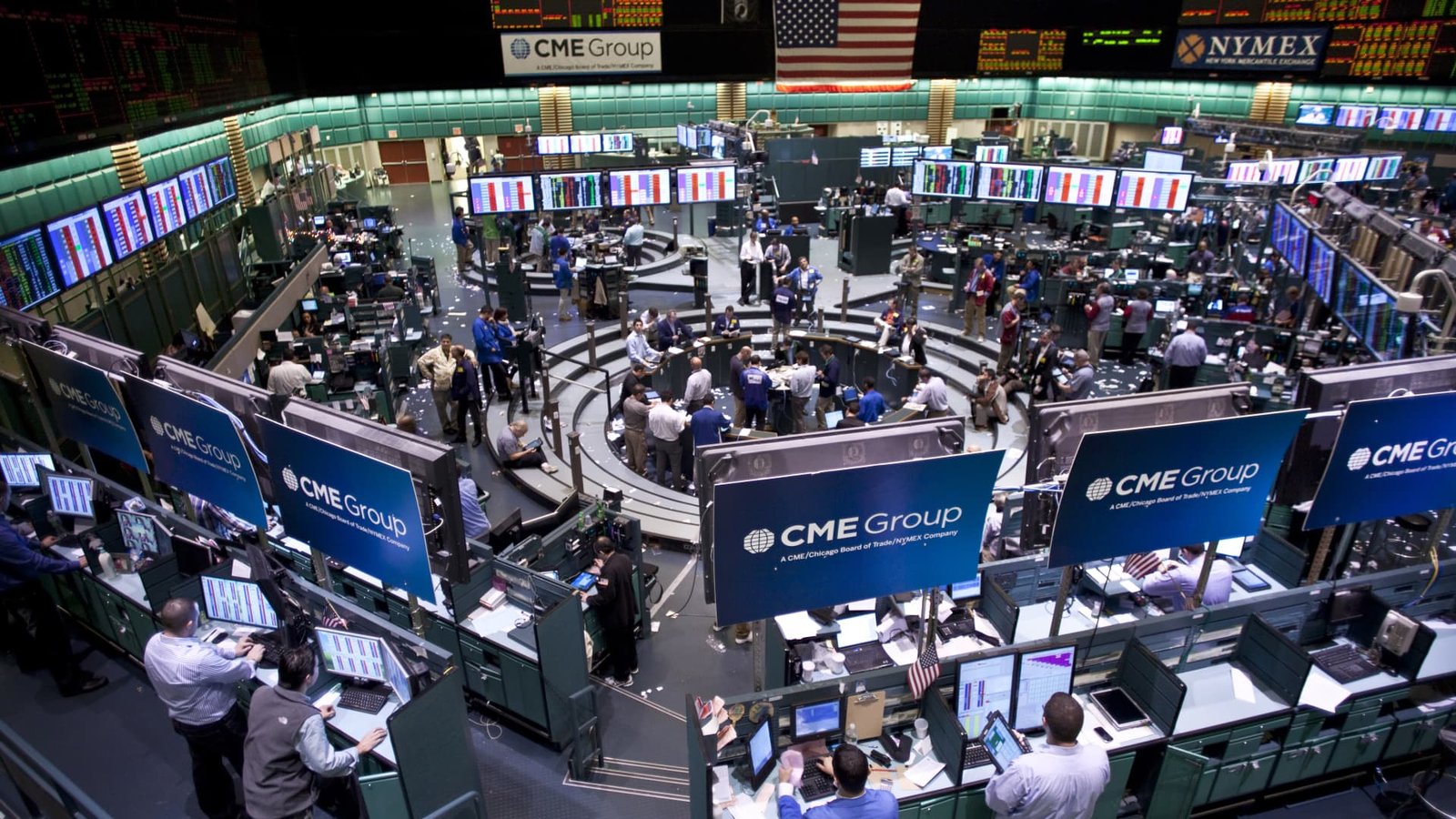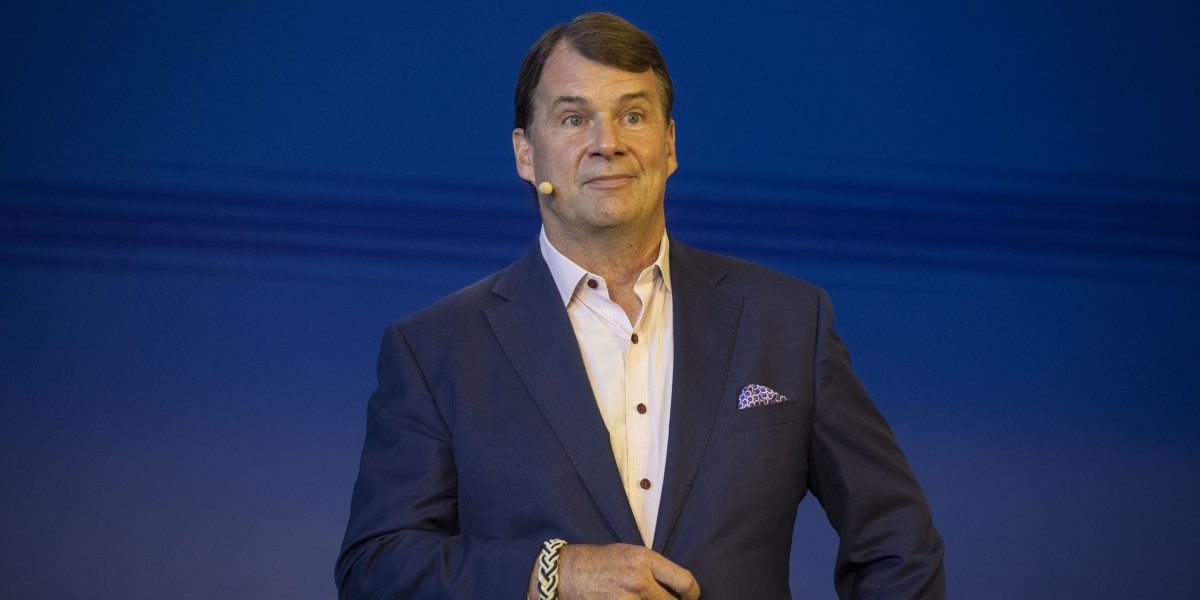
CME Halts FX, Commodities, Futures Trading After Data Center Issue
floor of the Chicago Mercantile Exchange (CME)/New York Mercantile Exchange (Nymex) in New York City. CME Group is the world’s largest and most diversified derivatives exchange.
David S. Holloway | Getty Images
Trading slowly resumed after a halt on the Chicago Mercantile Exchange on Friday, as a cooling problem at one of its data centers affected traders around the world.
Stock futures and options trading fully reopened As of 8:30 a.m. ET, other services are being gradually restored. Bonds and metals resumed trading after a pause, with individual stocks still trading premarket, according to FactSet data.
“All CME Group markets are open and trading,” a CME Group spokesperson said in an emailed statement.
Earlier, CME Group representatives told CNBC Markets was halted due to cooling issues at CyrusOne data centers, adding that it may take some time for affected contracts to move once the outage is resolved.

Globex futures and options market, foreign exchange platform EBS market and BMD market were all affected. EBS Markets reopened at 7 a.m. ET, about 90 minutes after its subsidiary BrokerTech EU Markets resumed trading.
CME — the world’s largest exchange operator by market value — trades futures and options in a variety of asset classes, including agricultural commodities, energy, metals and equities.
Cooling problem
Earlier, a spokesperson for Dallas, Texas-headquartered CyrusOne told CNBC that the company is actively responding to a cooling system issue at its CHI1 data center facility in the Chicago area, which has affected customers including CME Group.
“On November 27, our CHI1 facility experienced a chiller plant failure that affected several cooling units,” he said in an email. “Our engineering teams, along with specialty mechanical contractors, are working on site to restore full cooling capacity. We have successfully restarted several chillers at limited capacity and deployed temporary cooling equipment to supplement our permanent systems.”
A CyrusOne representative said the firm is in direct contact with all affected customers and that its teams are “working around the clock to restore normal operations as quickly and safely as possible.”
“We apologize for any disruption this has caused and appreciate our customers’ patience as we work towards a full resolution,” he added.
Art Hogan, b. Riley Wealth’s chief market strategist, told CNBC that it was fortunate that the outage occurred on one of the slowest trading days of the year in the US, after Thanksgiving.
“It looks like they’re slowly starting to restore some operations,” he said. “Everyone said it could be a lot worse.”
Emir Siazwan, a futures trader at Ninefold Trading Co. in the Malaysian capital Kuala Lumpur, told CNBC on Friday that he had been on the phone with his broker “all afternoon” local time as the CME outage escalated.

Given the timing of the outage — on weekends, after major US holidays and early morning hours for American traders — Siazwan said trades in the Asian or European session would be more directly affected.
Whether it will cause “permanent distortion” in the market depends on how quickly the problem can be resolved, he added.
“It’s inconvenient, but it’s not unprecedented, although this type of event could materially change market structure or price discovery,” he said. “Current price action already reflects the impact on markets: markets have been trading relatively flat and in a very tight range since November 26, Wednesday, ~10 PM EST. And until the issue is resolved, I expect the behavior and price action to continue.”
This is not the first time the CME has shut down electronic trading. Back in 2014Technical problems halted some trading on the CME’s Globex electronic system, affecting agricultural contracts.
Last year there was also trading in equities, bonds and exchange traded funds Temporarily stopped in Switzerland After Stock Exchange SIX, there was a problem in data transmission.
Siazwan’s own dealings were not affected, he told CNBC.
“I already anticipated that the major markets – especially the US indices – would rally by early next year, so I went on holiday at the beginning of the month,” he said.
— CNBC’s Lisa Kailai Han and Matt Ward-Perkins contributed to this article.












Post Comment